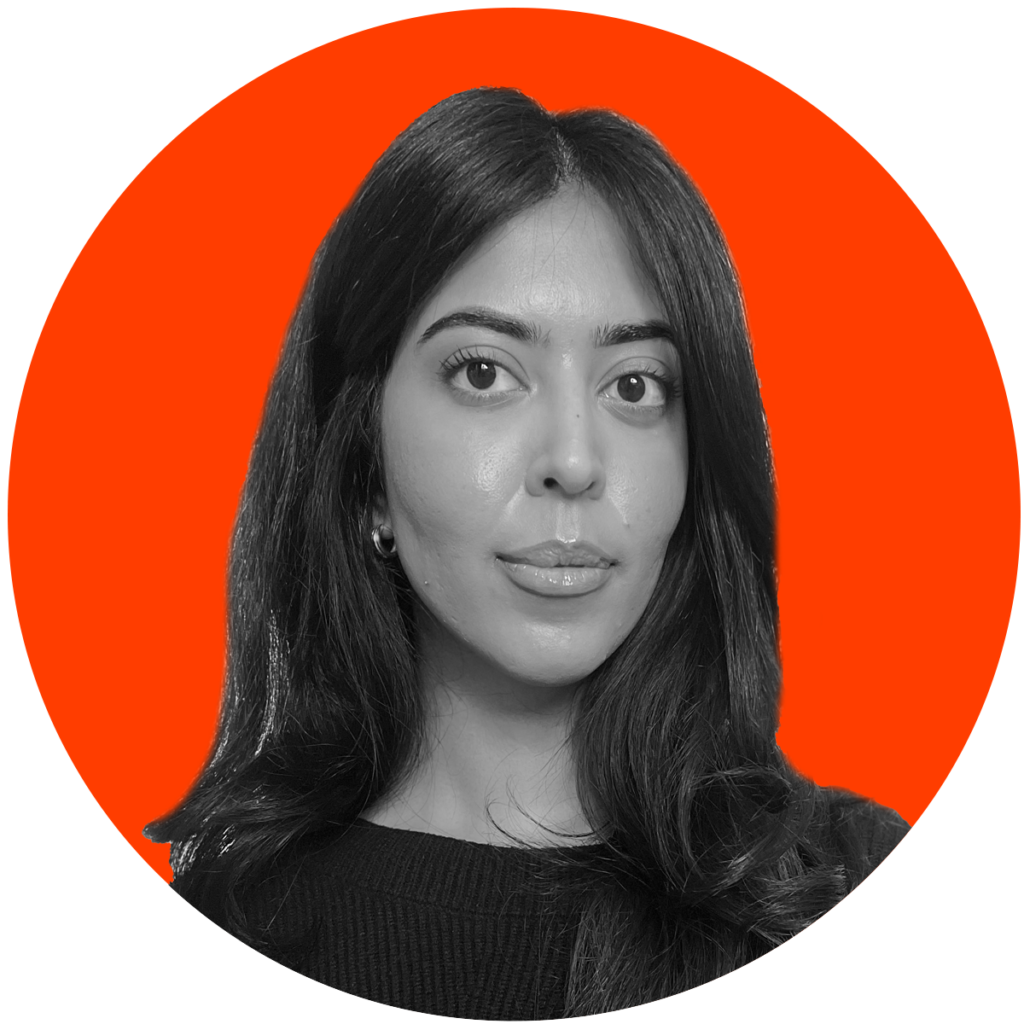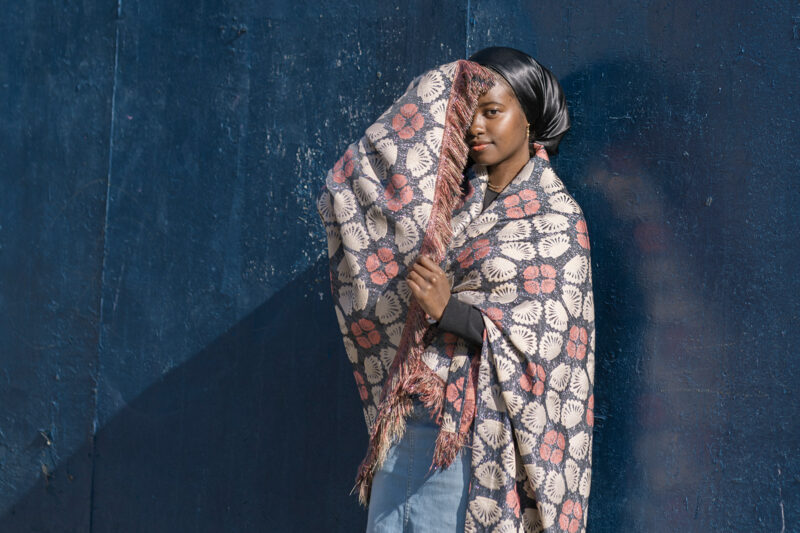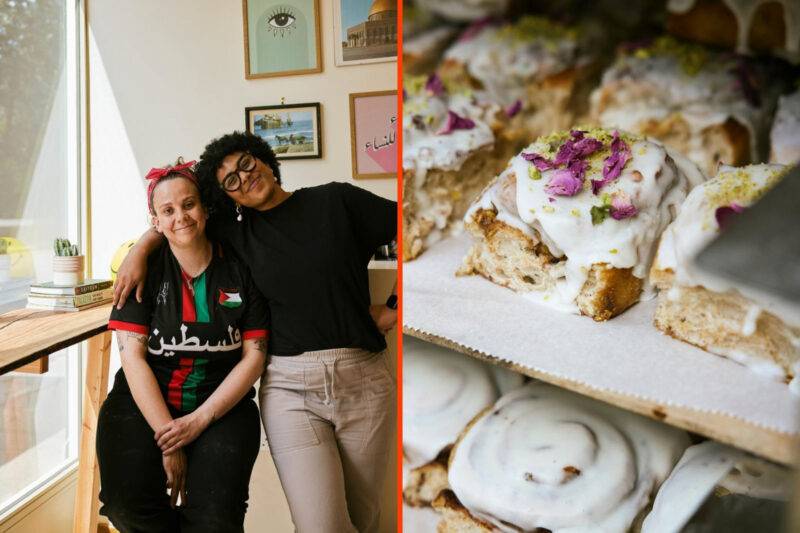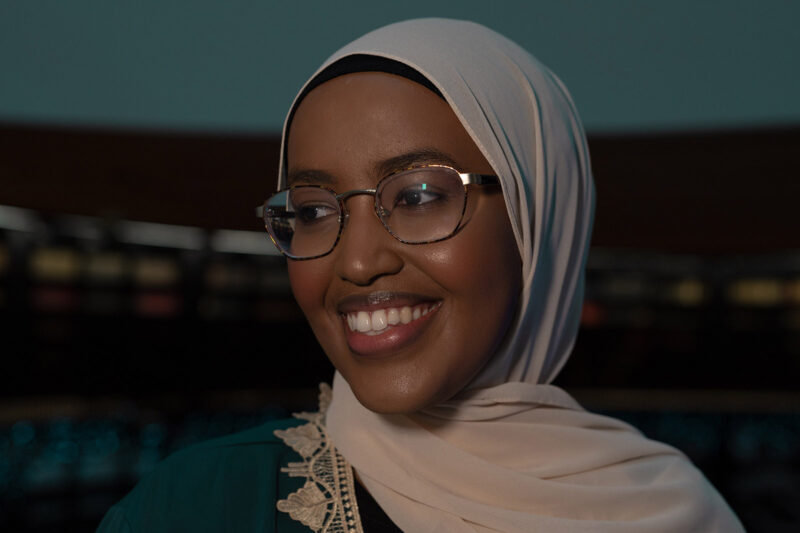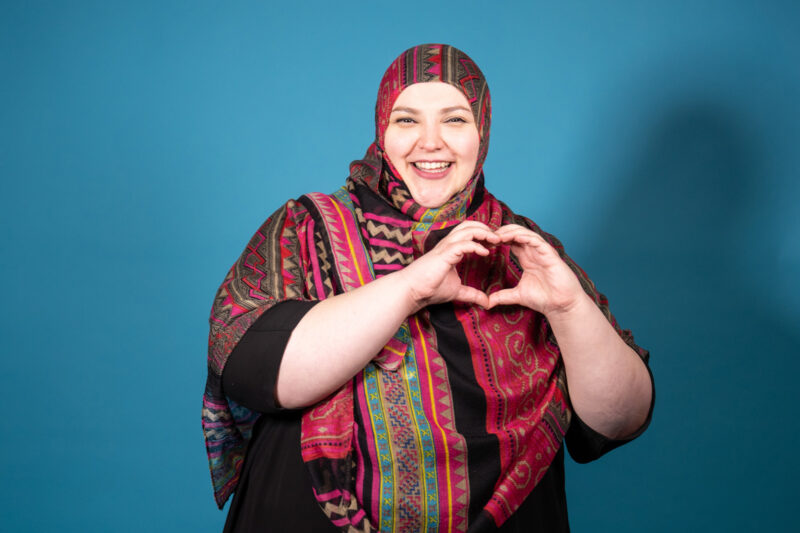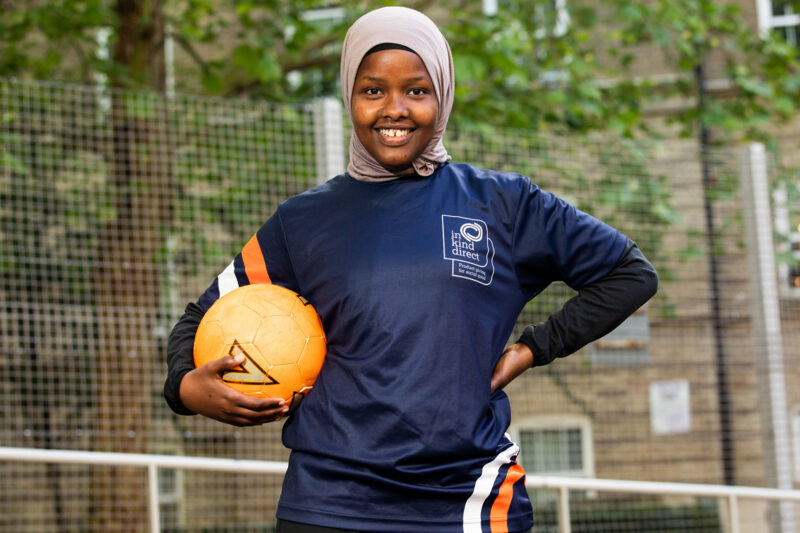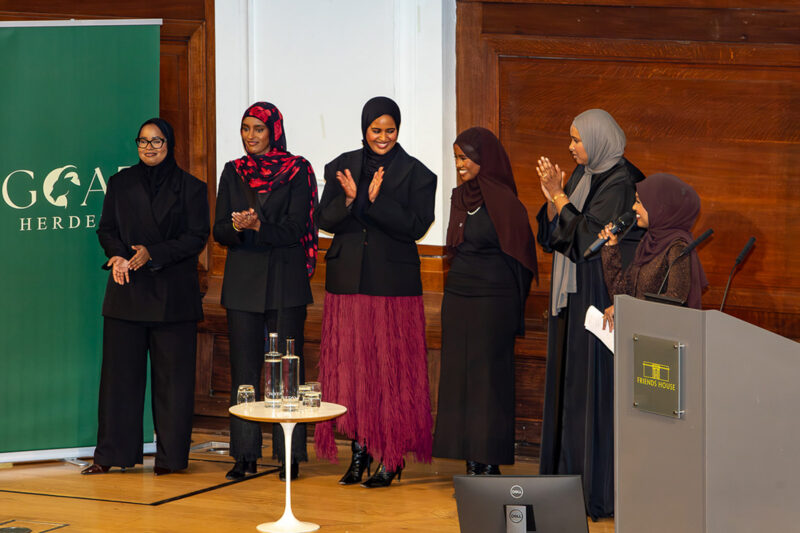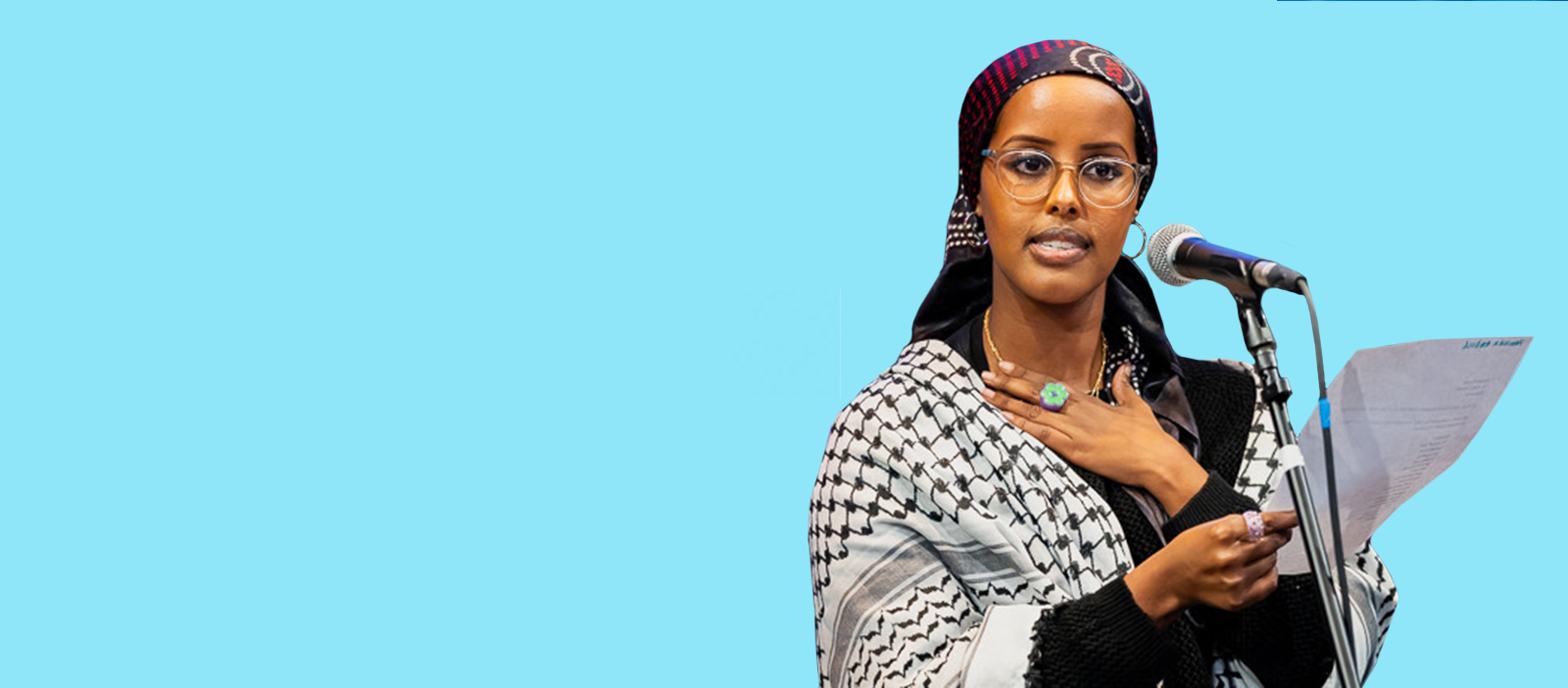
Hannah Abdule Q&A: ‘There are not enough spaces for Muslim women in the arts’
Hannah Abdule couldn’t see enough theatre being produced by, for or about Black Muslim women, so she started her own collective. Photograph by Oluwatosin Daniju
The award-winning British-Somali artistic director and producer on her upcoming shows and her theatre collective for Black women
Hannah Abdule set up her theatre company, Side eYe Productions, in 2019 after deciding to do something about the lack of plays being produced by Black Muslim women.
Abdule, who is based in south London, co-founded the company with three other women, and has since helped stage five plays. The 29-year-old artistic director spearheaded Side eYe’s first play, Home, which she wrote, directed, performed in and produced.
Home debuted at the Somali Week Festival in 2019, exploring themes of sisterhood and identity in a first generation British-Somali family.
In 2022, Abdule led the production of Dugsi Dayz, a comedy about four Somali girls who find themselves stuck in Saturday detention at Islamic school. Dugsi Dayz went on to win the Untapped award for new writing at the Edinburgh Fringe Festival in 2023, as well as the BBC Writersroom Popcorn Award, and is now being re-staged at the Royal Court Theatre in London.
Abdule spoke to Hyphen about the inspiration behind starting the company, and how to help more Muslims get into theatre.
This interview has been edited for length and clarity.
What inspired you to set up Side eYe?
In 2017, I saw a call out from producer Shukri Ibrahim— one of Side eYe’s co-founders — she was looking for people to perform in a play called Arawelo, about a famous Somali warrior queen. After taking part in that performance, I remember thinking to myself: I want to do this, and I want every other Muslim girl who wants to perform, act, or produce, to know that they can.
Have you always had an interest in theatre?
I’ve always loved performing. I took theatre studies during sixth form, and I was always taking part in school plays. That kind of died as I got older and went to uni and into work, as I didn’t feel the industry would accept me.
My religion guides the kind of work I want to be involved in, and I didn’t feel like I could be in the entertainment space. I’d also had some issues during theatre studies at school, like when a teacher had asked me: “Are you still going to wear your hijab for this role?” It took a while for me to come back to it and be honest with myself that this is something I wanted.
What has been your favourite production to work on to date?
I love them all because each one has resonated with different audiences, and we have never had a show that hasn’t sold out. Dugsi Dayz is really special because it’s quite culturally specific to Somalis, and it’s the play that catapulted us into the sphere of success.
How does Side eYe’s work speak to the Somali community in the UK?
We started out just wanting to tell stories for ourselves, but we quickly realised that this is bigger than that, because our plays serve as a source of inspiration for people to get involved in theatre.
We want our audience to see that theatre can be for them. That there isn’t a problem with theatre as an industry, but the problem is the people who occupy these spaces and the people who are writing the stories.
There are some incredible places, like the Bush Theatre, who are really paving the way for more people to get into theatre, and our work goes alongside that.
What is Side eYe doing to get more Muslims into theatre?
One of the things we do is work with people wanting to make their first entry into the industry, including actors and writers.
We operate less like a company and more like a collective, and we’re building a community in which everyone is helping one another. One of our co-founders, Poppy Clifford, is a trained director. She’s supported actors with self-tapes and auditions. Our writer, Sabrina Ali, has helped actors get signed to agents.
We’re constantly sharing opportunities with our network, and guiding and learning from one another.
How do you encourage women writers through your work?
We’re currently in talks to set up a playwriting group for Muslim women. We’ve had so much interest from Somali and non-Somali Muslim women who want to get involved. There are not enough spaces for Muslim women, especially in the arts, and we feel a sense of responsibility to create that.
Sometimes when I’m writing alone, I feel a longing to talk to other Muslim women, and ask for their perspectives. As Muslim women, we face far more ridicule and criticism. We want the group to be a place where we can shut that out and be each other’s support system.
What have you got planned for the rest of this year?
We’ve got a new show coming out, which will debut as part of Somali Week Festival, which takes place every October.
We’re also building on our show Desperate Times, a play about a lonely supply teacher with a petty thieving habit, which has got a short run at the Pleasance theatre in Islington, London this summer.
Dugsi Dayz is on at the Royal Court Theatre, 1-18 May. Desperate Times will be playing at the Pleasance London Studio, 31 May and 1 June.
 Newsletter
Newsletter

